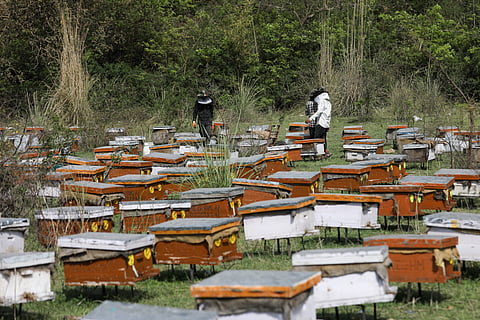
World Bee Day is celebrated on May 20 each year to raise awareness about the essential role that bees and other pollinators play in keeping our ecosystems healthy and ensuring food security.
This date was chosen to honor the birth of Anton Janša, a Slovenian beekeeper from the 18th century who is considered a pioneer in the field of modern beekeeping.
Slovenia led the initiative and in 2017, the United Nations officially declared May 20 as World Bee Day.
Bees are vital to pollination, a process necessary for the reproduction of many plants and the production of a significant portion of the food we eat. It is estimated that more than 75 per cent of the world’s food crops depend, at least in part, on pollinators like bees.
Without them, crops such as fruits, vegetables, nuts, and seeds would suffer, leading to a decline in biodiversity and threatening food supplies globally.
Despite their importance, bees face numerous threats including habitat loss, climate change, pesticide use, disease and industrial agriculture practices. These challenges have led to alarming declines in bee populations around the world. World Bee Day serves as a call to action to protect bees and promote sustainable agricultural practices that support pollinator health.
People observe World Bee Day in various ways, including planting pollinator-friendly plants, reducing the use of harmful chemicals, supporting local beekeepers, and educating others about the importance of bees.
By taking small, conscious steps, individuals and communities can help ensure that bees continue to thrive and fulfill their vital role in sustaining life on Earth.